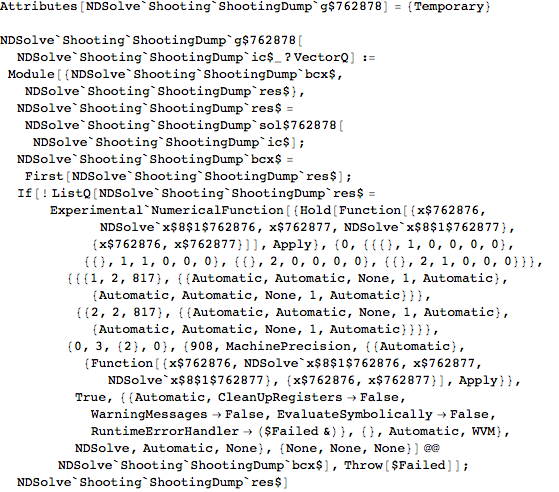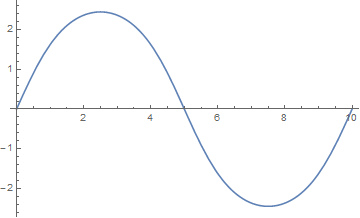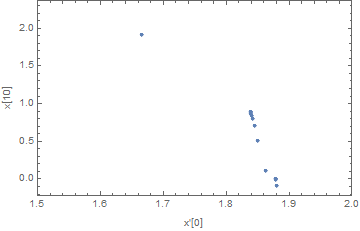Maybe commandeer FindRoot with the Villegas-Gayley trick: Updated, with the order of the steps taken by FindRoot saved in icsteps. The results of FindRoot, as saved by NDSolve and shown below as DownValues[], have been sorted by Mathematica and are not in the order in which there were called. This update stores the order in icsteps.
Clear[x, t];
Internal`InheritedBlock[{FindRoot},
Unprotect[FindRoot];
FindRoot[f_, vars_, rest__] /; ! TrueQ[$in] :=
Block[{$in = True, res},
(* saved data: nf, objective, call, icsteps *)
nf = f; (* NumericalFunction (unused here) *)
objective = DownValues @@ {Head@f["FunctionExpression"]}; (* expression used by f/nf *)
call = Inactive[FindRoot][f, vars, rest]; (* intended call, minus the monitor below *)
{res, icsteps} = Reap[
Sow[vars[[1, 1]], "icsteps"];
FindRoot[f, vars, rest, StepMonitor :> (Sow[#, "icsteps"] &)],
"icsteps"];
res];
Protect[FindRoot];
sol = First[
NDSolve[{x''[t] + Sin[x[t]] == 0, x[0] == x[10] == 0}, x, t,
Method -> {"Shooting", "StartingInitialConditions" -> {x'[0] == 1.666}}]];
]
The function passed to FindRoot:
objective

The actual call:
call
(*
Inactive[FindRoot][
Experimental`NumericalFunction[{NDSolve`Shooting`ShootingDump`sic$762878},
NDSolve`Shooting`ShootingDump`g$762878[NDSolve`Shooting`ShootingDump`sic$762878],
"-NumericalFunctionData-"], {{{0., 1.666}}},
"AccuracyGoal" -> 7.97729, "PrecisionGoal" -> 7.97729,
"MaxIterations" -> Automatic,
"Method" -> {"Newton", "StepControl" -> "TrustRegion"},
"WorkingPrecision" -> MachinePrecision]
*)
Forgot to add the NDSolve`Reinitialize call and results, which are memoized:
Cases[objective,
HoldPattern[NDSolve`Shooting`ShootingDump`res$ = ndcall_Symbol[_Symbol]] :>
DownValues[ndcall], Infinity]
(*
{{HoldPattern[NDSolve`Shooting`ShootingDump`sol$767038[{-0.151661, 1.86146}]] :>
{{{-0.151661, 1.86146}, {0.127858, 1.86324}},
{{{1., 0.}, {0., 1.}}, {{3.036, -25.0738}, {-0.288852, 2.71496}}}},
... a bunch of results from trial integrations...
HoldPattern[NDSolve`Shooting`ShootingDump`sol$767038[{0., 1.87817}]] :>
{{{0., 1.87817}, {-0.0000590907, 1.87817}},
{{{1., 0.}, {0., 1.}}, {{1., -27.9028}, {0.000031445, 0.999123}}}},
HoldPattern[
NDSolve`Shooting`ShootingDump`sol$767038[NDSolve`Shooting`ShootingDump`ic$_?VectorQ]] :>
(NDSolve`Shooting`ShootingDump`sol$767038[NDSolve`Shooting`ShootingDump`ic$] =
Module[{NDSolve`Shooting`ShootingDump`tstate$,
NDSolve`Shooting`ShootingDump`sres$},
NDSolve`Shooting`ShootingDump`tstate$ =
Quiet[NDSolve`Reinitialize[
NDSolve`Shooting`ShootingDump`state$767038,
{NDSolve`Shooting`ShootingDump`x$767038[NDSolve`Shooting`ShootingDump`ts$767038] ==
NDSolve`Shooting`ShootingDump`ic$,
NDSolve`Shooting`ShootingDump`Y$767038[NDSolve`Shooting`ShootingDump`ts$767038] ==
NDSolve`Shooting`ShootingDump`id$767038}],
{NDSolve`Reinitialize::precw}];
If[! ListQ[NDSolve`Shooting`ShootingDump`tstate$], Throw[$Failed]];
NDSolve`Shooting`ShootingDump`tstate$ = First[NDSolve`Shooting`ShootingDump`tstate$];
NDSolve`Shooting`ShootingDump`sres$ =
NDSolve`Shooting`ShootingDump`iterate[NDSolve`Shooting`ShootingDump`tstate$];
{NDSolve`Shooting`ShootingDump`sres$[[
All, 1 ;; NDSolve`Shooting`ShootingDump`n$767038
]],
(Partition[#1, NDSolve`Shooting`ShootingDump`n$767038] &) /@
NDSolve`Shooting`ShootingDump`sres$[[
All, NDSolve`Shooting`ShootingDump`n$767038 + 1 ;; -1
]]
}])}}
*)
As noted above, these downvalues do not show the order of the steps. The steps may be seen in icsteps:
icsteps
(*
{{{0., 1.666}, {-0.00021824, 1.8383}, {-0.00124324, 1.83842},
{-0.00327712, 1.83866}, {-0.00727959, 1.83913}, {-0.0150193, 1.84003},
{-0.0294259, 1.84172}, {-0.0540885, 1.84465}, {-0.0974275, 1.8502},
{-0.151661, 1.86146}, {-0.0495448, 1.87856}, {-6.93889*10^-18, 1.87882},
{0., 1.87817}, {0., 1.87817}, {0., 1.87817}}}
*)




ParametricNDSolve[]is way more convenient to use if you're performing manual shooting; that works withWhenEvent[]as well. $\endgroup$